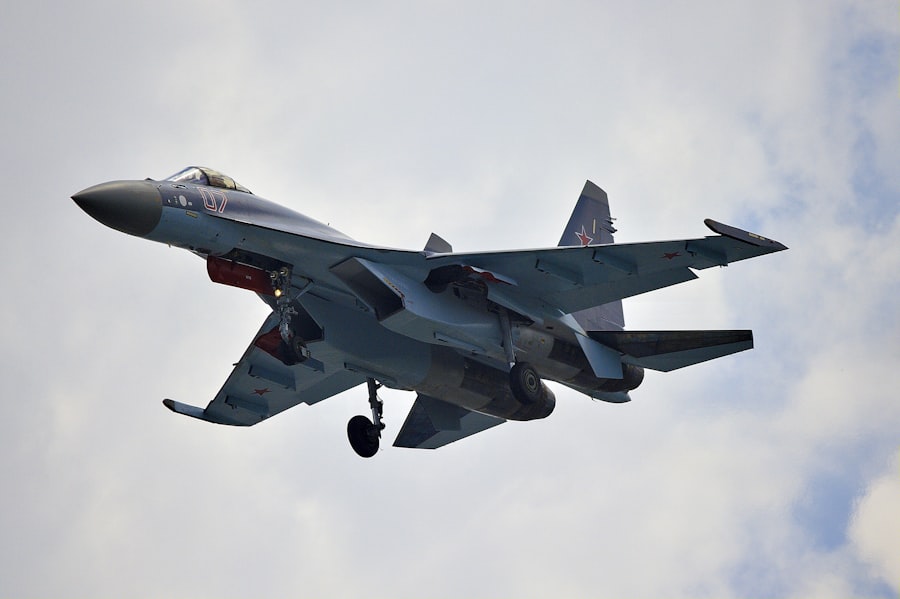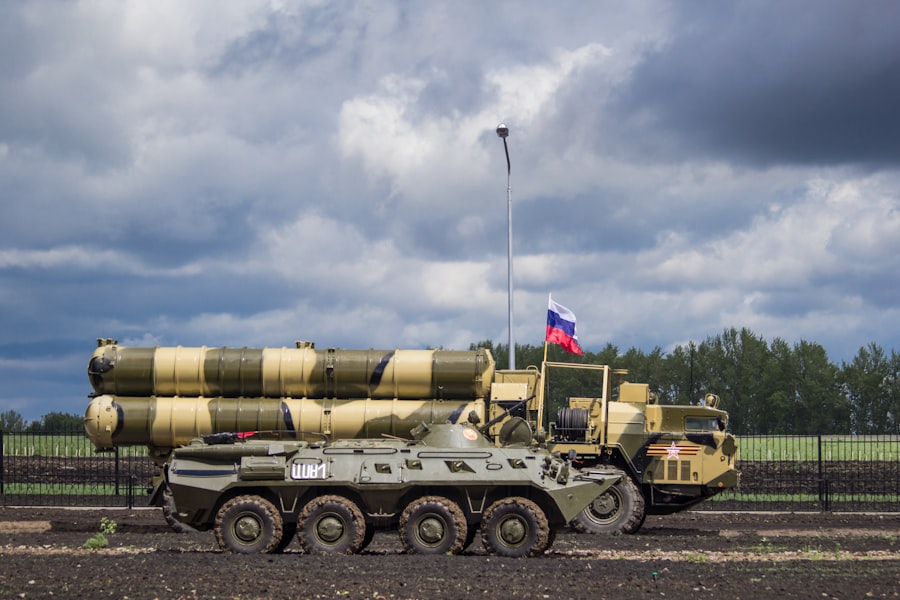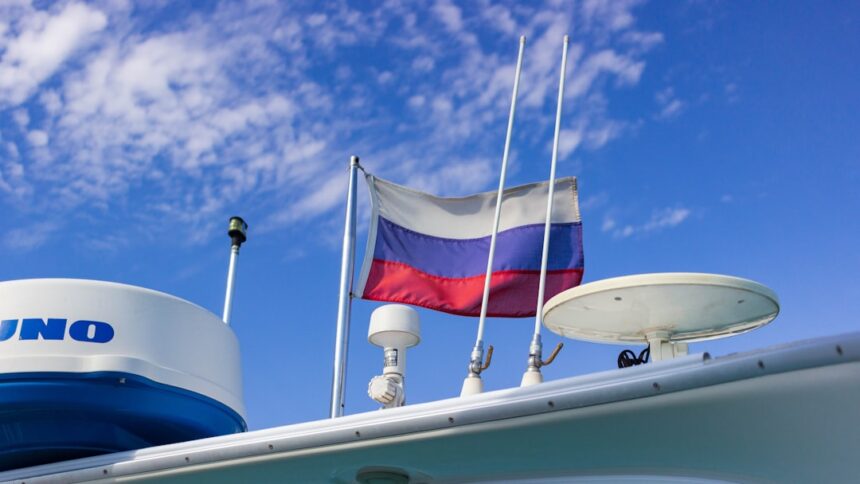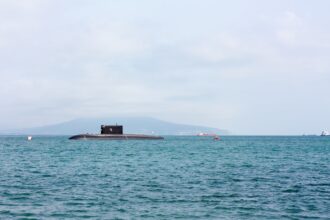The Russian military has long been a subject of scrutiny, not only for its strategic maneuvers but also for the internal issues that plague its operations. Among these issues, fuel and ration scams have emerged as particularly egregious examples of corruption. These scams involve the misappropriation of resources intended for military personnel, leading to significant financial losses and undermining the effectiveness of military operations.
The implications of such fraudulent activities extend beyond mere financial discrepancies; they raise questions about the integrity and accountability of the military establishment itself. As the Russian military continues to modernize and expand its capabilities, the presence of these scams highlights a troubling paradox. While the government invests heavily in military advancements, the reality on the ground reveals a system riddled with inefficiencies and corruption.
This duality not only affects troop morale but also poses a risk to national security, as resources meant for defense are siphoned off for personal gain.
Key Takeaways
- The Russian military has been involved in fuel and ration scams, leading to corruption and inefficiency.
- The scams were discovered through internal investigations and whistleblowers, shedding light on the extent of the problem.
- The impact on military operations has been significant, affecting readiness and effectiveness in carrying out missions.
- Corruption and lack of accountability within the Russian military have allowed these scams to persist and go unchecked.
- Government oversight has been insufficient in addressing the issue, raising concerns about transparency and accountability.
How the Scams Were Discovered
The discovery of fuel and ration scams within the Russian military was not an isolated incident but rather a culmination of various reports and whistleblower accounts that began surfacing over several years. Investigative journalists and independent watchdog organizations played a pivotal role in uncovering these fraudulent activities. Through meticulous research and analysis, they revealed patterns of irregularities in procurement processes, where inflated prices and fictitious contracts became commonplace.
These revelations sparked public outrage and drew attention to the systemic issues plaguing military logistics. Moreover, internal audits conducted by the Ministry of Defense further exposed the extent of these scams. Auditors found discrepancies in fuel consumption records and ration distribution logs, indicating that a significant portion of resources was unaccounted for.
The findings prompted an internal investigation, which ultimately confirmed suspicions of widespread corruption. As more evidence came to light, it became increasingly clear that these scams were not merely isolated incidents but indicative of a larger culture of corruption within the military hierarchy.
Impact on Military Operations

The ramifications of fuel and ration scams on military operations have been profound. With resources being diverted away from their intended purposes, troops often find themselves inadequately supplied and ill-prepared for their missions. Reports have indicated that soldiers have gone without essential supplies, including food and fuel, which directly impacts their operational readiness and morale.
This lack of support can lead to diminished effectiveness in training exercises and combat scenarios, ultimately compromising national defense capabilities. Furthermore, the diversion of funds intended for military logistics has broader implications for strategic planning. When financial resources are misallocated, it hampers the military’s ability to maintain equipment, conduct training, and execute operations effectively.
The resulting inefficiencies can create vulnerabilities that adversaries may exploit, thereby undermining Russia’s position on the global stage. As such, the impact of these scams extends far beyond immediate financial losses; it poses a significant threat to the overall integrity and functionality of the Russian military.
Corruption and Accountability within the Russian Military
| Metrics | Data |
|---|---|
| Corruption level | High |
| Transparency | Low |
| Accountability | Weak |
| Reported cases of corruption | Numerous |
| Efforts to combat corruption | Limited |
Corruption within the Russian military is not a new phenomenon; it has been a persistent issue that has plagued various branches for decades. The fuel and ration scams are merely symptomatic of a deeper malaise that affects accountability at all levels of command. The lack of transparency in procurement processes and insufficient oversight mechanisms have created an environment where corrupt practices can flourish unchecked.
This culture of impunity not only erodes trust among service members but also raises concerns about the military’s ability to operate effectively. Efforts to address corruption have been met with mixed results. While some high-ranking officials have faced prosecution for their involvement in fraudulent activities, many others continue to operate with little fear of repercussions.
This inconsistency in accountability fosters a sense of cynicism among troops, who may feel that their superiors are more concerned with personal gain than with their welfare or mission success. As long as this culture persists, it will be challenging to instill a sense of integrity and responsibility within the ranks.
The Role of Government Oversight
Government oversight plays a crucial role in curbing corruption within the military, yet its effectiveness has often been called into question in Russia. The Ministry of Defense has established various oversight bodies aimed at monitoring procurement processes and ensuring compliance with regulations. However, these entities frequently lack the independence necessary to operate effectively.
Political pressures and bureaucratic obstacles can hinder their ability to investigate allegations thoroughly or hold individuals accountable for wrongdoing. Moreover, the relationship between military leadership and government officials can complicate oversight efforts. When high-ranking officers are implicated in corruption scandals, there is often reluctance to pursue investigations that could implicate powerful figures within the government or military hierarchy.
This lack of accountability undermines public confidence in oversight mechanisms and perpetuates a cycle of corruption that is difficult to break. For meaningful reform to occur, there must be a commitment to strengthening oversight bodies and ensuring their independence from political influence.
Consequences for Those Involved in the Scams

The consequences for individuals involved in fuel and ration scams can vary significantly depending on their rank and connections within the military establishment. In some cases, lower-ranking personnel may face disciplinary action or even criminal charges for their involvement in fraudulent activities. However, high-ranking officials often escape severe repercussions due to their status or political connections.
This disparity in accountability raises questions about fairness within the military justice system and contributes to a culture where corruption can thrive. Additionally, those who do face consequences may find themselves scapegoated for systemic issues rather than being held accountable for their specific actions. This approach can create an illusion of accountability while failing to address the root causes of corruption within the military.
As long as there is no consistent application of justice across all ranks, it will be challenging to deter future misconduct or foster a culture of integrity within the armed forces.
Efforts to Address the Issue
In response to growing public concern over corruption within the military, various initiatives have been proposed to address fuel and ration scams more effectively. Some reform advocates have called for increased transparency in procurement processes, including public access to contracts and spending reports. By making this information available to citizens and independent watchdogs, it becomes more challenging for corrupt practices to go unnoticed.
Additionally, there have been calls for enhanced training programs aimed at instilling ethical standards among military personnel. By emphasizing the importance of integrity and accountability from an early stage in their careers, it may be possible to cultivate a culture that prioritizes ethical behavior over personal gain. However, implementing such reforms requires a commitment from leadership at all levels to prioritize transparency and accountability over entrenched interests.
Public Perception and Trust in the Military
Public perception of the Russian military has been significantly affected by revelations surrounding fuel and ration scams. As citizens become increasingly aware of corruption within the armed forces, trust in military leadership has waned. Many Russians view these scandals as indicative of broader systemic issues within government institutions, leading to skepticism about the military’s ability to fulfill its primary mission: defending national security.
This erosion of trust can have far-reaching consequences beyond public opinion; it may also impact recruitment efforts and troop morale. Young individuals considering a career in the military may be deterred by negative perceptions surrounding corruption and inefficiency. Furthermore, existing service members may feel demoralized by revelations that their leaders are engaging in unethical practices while they struggle with inadequate resources.
Rebuilding public trust will require concerted efforts from military leadership to demonstrate a commitment to reform and accountability.
Comparison to Similar Scandals in Other Countries
Corruption scandals are not unique to Russia; many countries have grappled with similar issues within their military establishments. For instance, various reports have surfaced regarding procurement fraud in countries like Ukraine and Brazil, where inflated contracts and misappropriation of funds have raised concerns about operational effectiveness. These comparisons highlight a common challenge faced by militaries worldwide: ensuring accountability while navigating complex bureaucratic systems.
However, what sets Russia apart is the extent to which these scandals have permeated its military culture. While other nations may experience isolated incidents of corruption, Russia’s systemic issues appear more entrenched, exacerbated by a lack of independent oversight and political will to address them comprehensively. Learning from international best practices could provide valuable insights into how Russia might tackle its own corruption challenges more effectively.
Implications for National Security
The implications of fuel and ration scams extend far beyond financial losses; they pose significant risks to national security as well.
This vulnerability can embolden adversaries who may perceive weaknesses within Russia’s defense capabilities.
Moreover, as public trust in the military erodes due to corruption scandals, it becomes increasingly challenging for leaders to rally support for defense initiatives or justify budget allocations for modernization efforts. A demoralized military struggling with resource shortages may find itself ill-equipped to address emerging security challenges effectively. Therefore, addressing corruption is not merely an internal issue; it is fundamentally linked to maintaining national security.
Future Outlook for Reform and Transparency in the Russian Military
The future outlook for reforming corruption within the Russian military remains uncertain but not entirely bleak. There is growing recognition among some segments of society that addressing these issues is essential for ensuring effective defense capabilities moving forward. Increased public awareness surrounding fuel and ration scams has sparked discussions about accountability measures and transparency initiatives that could help mitigate corruption.
However, meaningful reform will require sustained political will from leadership at all levels within both the military establishment and government institutions. Without a commitment to prioritizing integrity over personal gain or political expediency, efforts toward transparency may falter under pressure from entrenched interests resistant to change. Ultimately, fostering a culture of accountability will be crucial if Russia hopes to rebuild trust among its citizens while enhancing its national security posture in an increasingly complex global landscape.
In recent years, the Russian military has faced numerous challenges, not least of which are the persistent issues of fuel and ration scams that have plagued its operations. These scams have not only undermined the efficiency of military logistics but have also raised serious concerns about corruption within the ranks. For a deeper understanding of the complexities surrounding these issues, you can explore a related article on the topic by visiting In The War Room. This article delves into the intricacies of the scams and their impact on the Russian military’s operational capabilities, providing valuable insights into the broader implications of corruption in military supply chains.
WATCH NOW! 🎖️ Plot Twist: Russia’s Military Is Being Eaten Alive By Its Own Corruption
FAQs
What are the fuel and ration scams in the Russian military?
The fuel and ration scams in the Russian military involve corruption and embezzlement of resources meant for the military, including fuel and food rations.
How do these scams affect the Russian military?
These scams can have detrimental effects on the readiness and effectiveness of the Russian military, as they result in shortages of essential resources and undermine morale.
What measures are being taken to address these scams?
The Russian government has taken steps to address these scams, including launching investigations, implementing stricter oversight, and prosecuting those involved in corrupt activities.
What are the consequences for those involved in fuel and ration scams in the Russian military?
Individuals found guilty of participating in fuel and ration scams in the Russian military can face legal consequences, including fines, imprisonment, and dismissal from the military.
How widespread are these scams within the Russian military?
The extent of these scams within the Russian military is not fully known, but reports and investigations suggest that they have been a significant issue affecting various branches of the military.




